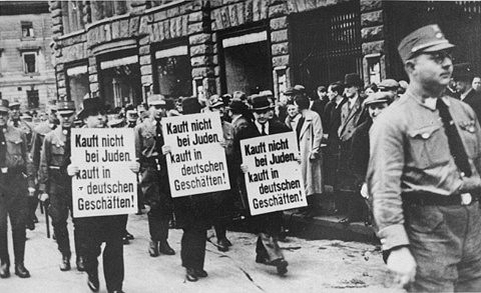Welcome to another post. After learning about Music Through Time and Trashing The World, we move on this journey to a new path - World At War. First, we learnt about the Holocaust by looking at the Great Depression. The task was to research the Great Depression and answer the following questions.
The Great Depression occurred over most of the world starting generally in 1929 and ending in the late 1930s. It was the deepest longest-lasting economic downturn in the history of the western industrialized world. In Europe Germany was probably hit the hardest of all European countries and Hitler and the Nazi party blamed The Treaty of Versailles for this.
 |
| Hitler Comes To Power Credit: https://encyclopedia.ushmm.org/content/en/article/hitler-comes-to-power |
Why was Germany hit the hardest during the depression?
Germany was one of the hardest hits during The Great Depression due to the Treaty of Versailles, which was intended to resolve leading disputes following the discontinuance of hatred in World War I.
 |
| The Great Depression in Germany Credit: https://bwthegreatdepression.weebly.com/the-great-depresion-in-germany.html |
Explain what Germany had to agree to by signing the Treaty of Versailles?
The European Allies imposed harsh peace terms on Germany, forcing the nation to surrender around 10 percent of its territory and all of its overseas possessions. Other key provisions of the Treaty of Versailles called for the demilitarisation and occupation of the Rhineland, limited Germany's army and navy, forbade it to maintain an air force and required it to conduct war crimes trials against Kaiser Wilhelm II and other leaders for their aggression. Most importantly, Article 231 of the treaty, better known as the "war guilt clause," forced Germany to accept full responsibility for starting World War I and pay enormous reparations for Allied war losses. The humiliation of defeat and the 1919 peace settlement played a prominent character in the ascension of Nazism in Germany and the advent of a second "world war" 20 years later.
The treaty required Germany to lose 13 percent of its territory, including 10 percent of its population. The Treaty of Versailles forced Germany to:
- surrender Eupen-Malmédy to Belgium
- surrender the Hultschin district to Czechoslovakia
- surrender Poznan, West Prussia, and Upper Silesia to Poland
- return Alsace and Larraine, affixed in 1871 after the Franco-Prussian War, to France.
Furthermore, all German overseas colonies were taken away from Germany and became League of Nation Mandates. The city of Danzig (today, Gdansk in Poland), with its large ethnically German population, became a Free City - a self-governing city.
French sought to limit Germany's potential to regain its economic superiority and also to rearm. The German army was to be limited to 100,000 men. Conscription (compulsory enrollment for service) was forbidden. The treaty restricted the Navy to vessels under 9,000 tonnes, with a ban on the recovery or maintenance of the submarine fleet. Germany was forbidden to maintain an air force.
How was NZ affected by the depression?
For New Zealand, the Great Depression of the early 1930s was the most shattering experience ever recorded. Mainly, exports fell by 45% in two years and the national income fell by 40% in three. At the worst point, the unemployed exceeded 70,000.
| America during the Great Depression Credit: https://www.insider.com/great-depression-photos-of-america-unemployment-2020-5 |
References: